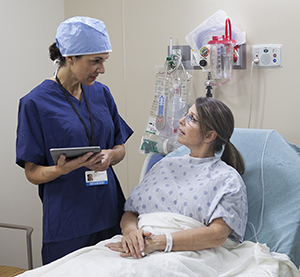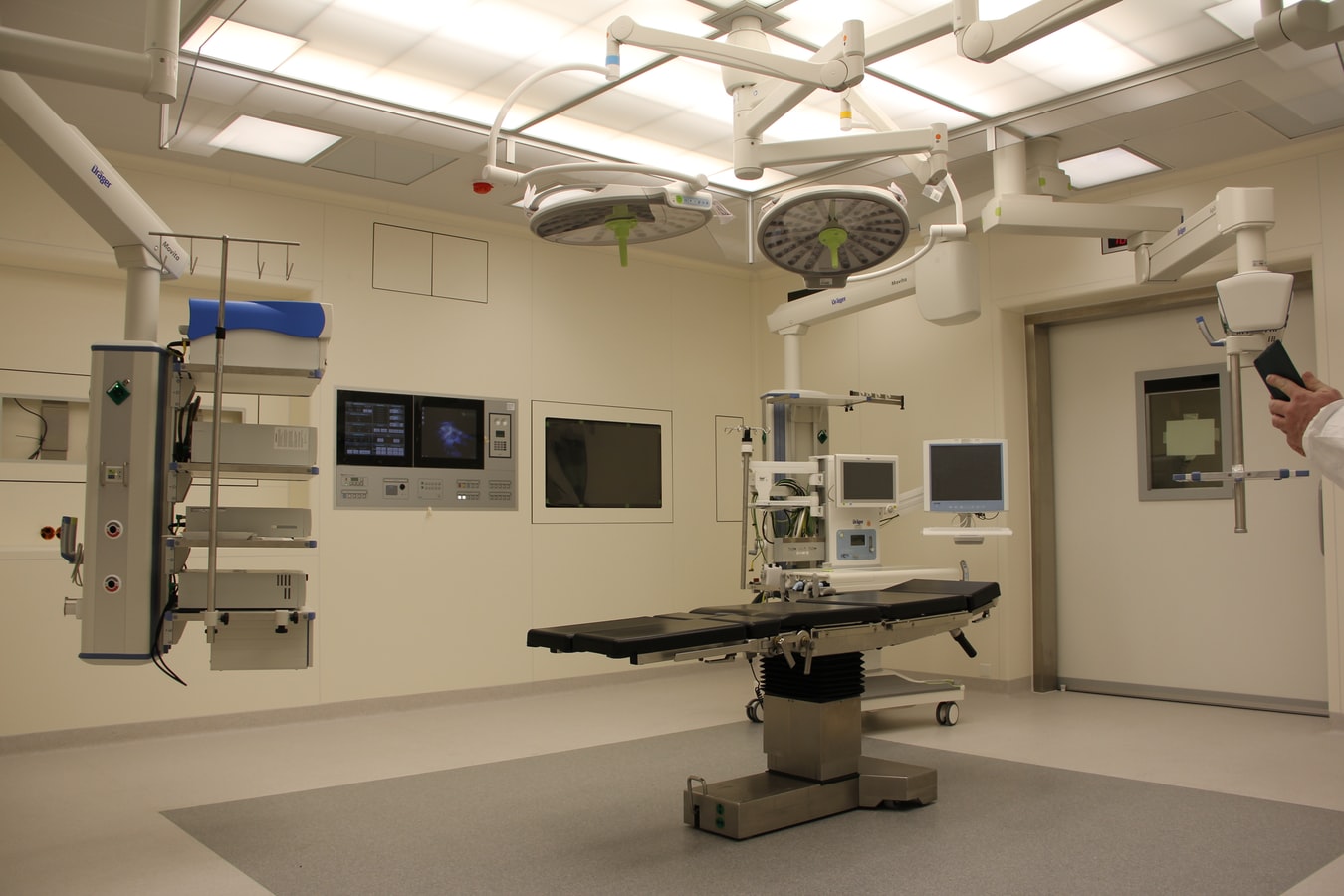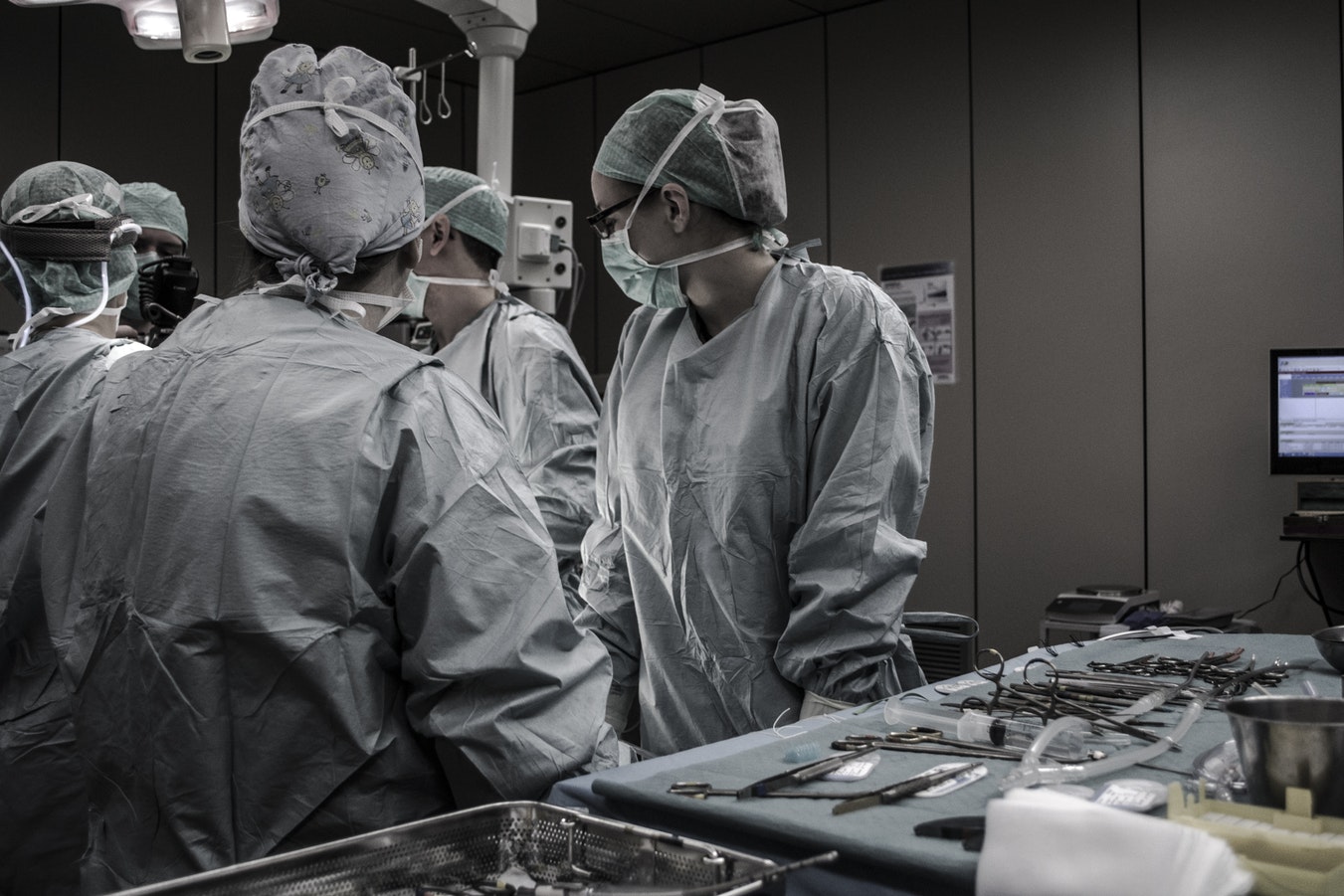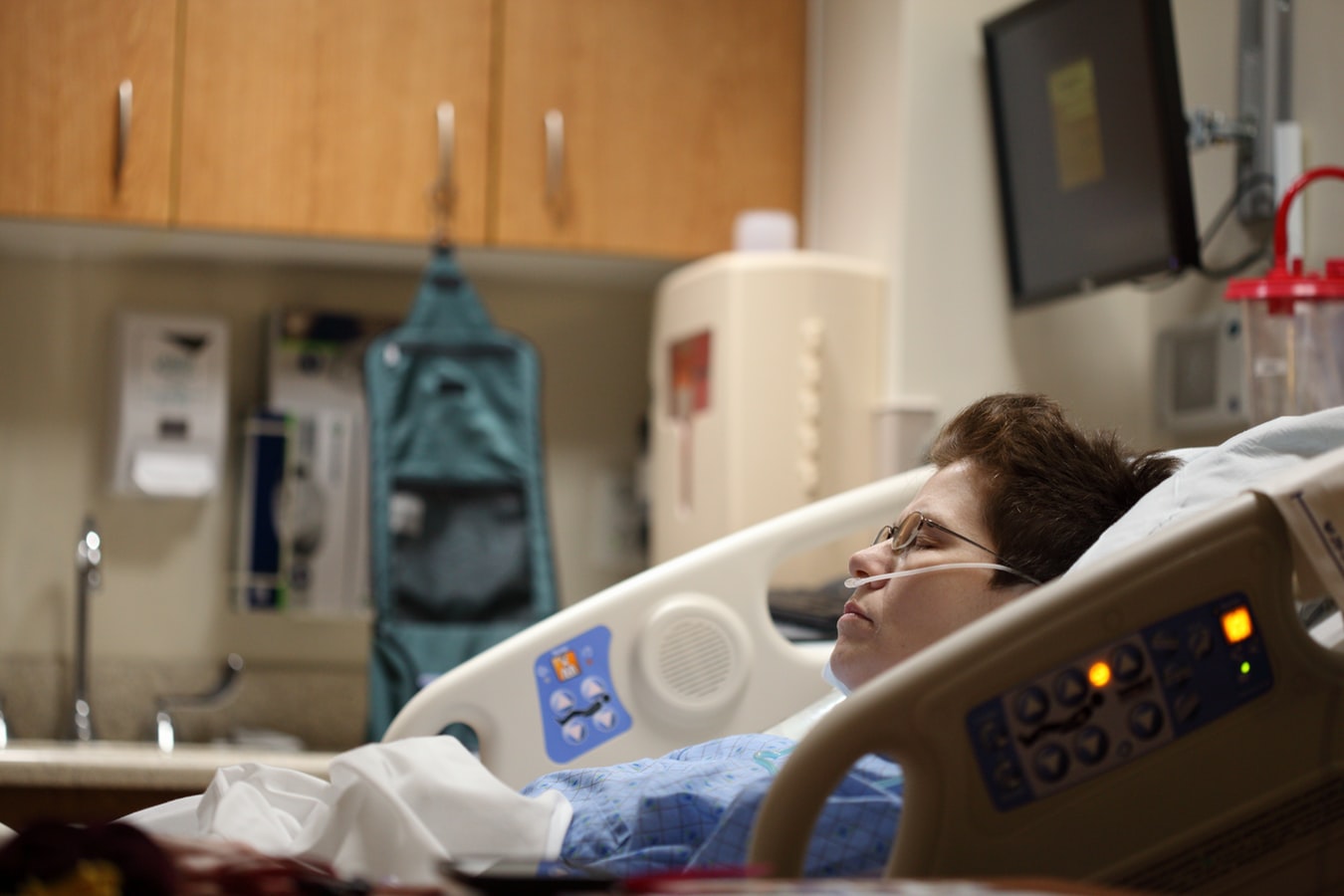Mentally Preparing For Surgery

- Surgery is a helpless feeling. You are trusting a highly trained team of individuals to make sure everything goes smoothly. Regardless of the reassurance, it's still a very destitute feeling. Out of the millions of Americans who have surgery every year, anxiety beforehand can be a real problem. Most people don’t allow themselves to appropriately prepare for the psychological effect that surgery has on the brain. For first timers who are going through a surgical procedure the affects can have a profound impact on how an individual recuperates.
How To Handle Pre-Surgery Anxiety? Around 40 million Americans have an anxiety disorder and that equates to roughly 18% of the population. Going into a surgery with an optimistic mindset is imperative for many reasons and being frightened or having concerned has a profound impact on a person’s mental stability. Figures have shown that at least “40 percent of all adults undergoing surgery experience high anxiety and adverse effects, both during and after the surgical event.”
Around 40 million Americans have an anxiety disorder and that equates to roughly 18% of the population. Going into a surgery with an optimistic mindset is imperative for many reasons and being frightened or having concerned has a profound impact on a person’s mental stability. Figures have shown that at least “40 percent of all adults undergoing surgery experience high anxiety and adverse effects, both during and after the surgical event.”
Certainly there are medications that have assisted in the calming of nerves including many homeopathic options such as chamomile tea, L-theanine or even yoga. Homeopathic options also assist someone who's suffering from allergies, migraines, depression, and chronic fatigue syndrome among its many benefits. A study by Dana Ullman states that "Once it is determined that surgery is medically necessary, homeopathic medicines can reduce complications of surgery and augment healing so that people can recover more quickly afterward. Surgeons commonly ask patients not to take any food, drink, or drugs prior to surgery. While it makes sense to avoid food, drink, and conventional drugs, there have never been any reported problems from taking homeopathic remedies prior to surgery." His research showed that "Some homeopaths recommend Ferrum phos 6, four times a day for two days, prior to surgery in order to prevent infection and hemorrhaging. Homeopathic medicines can also help people deal with the various emotions they are experiencing prior to surgery. One double-blind, randomized trial on 50 children who underwent surgery showed that 95% of those given the homeopathic medicine Aconitum experienced significantly less post-operative pain and agitation."
Attributing to the anxiety is the fact that no one can prepare for what they are about to face. During my surgery I went in completely unprepared the initial time. It's important to follow the rules that the doctor orders. For my operation one of the instructions was not eat beforehand however that morning I ate breakfast and the surgery had to be delayed by a few hours. This had a psychological effect on the overall thought process leading into the surgery. I was physically prepared dressed in a gurney but mentally it was a different story. They now stated, “it’s going to be four more hours until the surgery could begin.” The reason behind delaying the surgery is the fact that if your body has food or fluid in it when you’re under anesthesia it’s a possible risk of vomiting or regurgitation bringing up food into your throat and thus choking you. This was a difficult period as I was surrounded by family members. Thoughts raced through my mind like would I ever see them again? Was my life everything I hoped it would be? The added stress of knowing it was coming and having to wait even longer had an impact on my psych.
In many aspects people are lucky to have family around during the times before surgery. This not only boosts emotional support but also gives a person something to distract themselves with. However others are not so lucky. Going at surgery alone and having a sense of isolation is a hard thing people deal with. As our continued social structures in the world are changing so too is the way we communicate with loved ones. Be it through texting, social media, Facetime there has been research that has shown unequaled benefits from this exposure. So how can we manage anxiety before a surgical procedure?
Should I Ask Questions? As you prepare for the procedure, it's highly advised that you go over any questions with your doctors ahead of time. The worst thing you can do is look up random internet sites on the procedure. This will increase your anxiety aspect times ten by doing this. If you want to know the real stories, make sure to seek out proper sources. Be it the sources your doctor advises to watch or read. Don’t go into the surgery with immoral thoughts about others who may have had unpleasant experiences. You don’t know who those people are behind the screens and those stories may not be entirely true either. Stick to trusted sources and the anxiety will be put at better ease.
As you prepare for the procedure, it's highly advised that you go over any questions with your doctors ahead of time. The worst thing you can do is look up random internet sites on the procedure. This will increase your anxiety aspect times ten by doing this. If you want to know the real stories, make sure to seek out proper sources. Be it the sources your doctor advises to watch or read. Don’t go into the surgery with immoral thoughts about others who may have had unpleasant experiences. You don’t know who those people are behind the screens and those stories may not be entirely true either. Stick to trusted sources and the anxiety will be put at better ease. Let’s talk about asking questions. Before my surgical procedure I wanted to know exactly how they were going to put me under the anesthesia. One of the biggest fears was the unknown factor of how anesthesia would work. Would I feel anything? Could I hear the procedure? What if I woke up! All these thoughts raced through my head and that was a horrible sensation. There would be nights I couldn’t sleep and as the days dew nearer to the surgery date I needed to ask these questions to calm my nerves. Talking to my medical provider they explained the scenario very calmly and this eased the amount of stress that was felt. They also provided a list of sources that allowed me to see similar procedures and the valuable team effort that it takes to look after a patient during surgery.
Let’s talk about asking questions. Before my surgical procedure I wanted to know exactly how they were going to put me under the anesthesia. One of the biggest fears was the unknown factor of how anesthesia would work. Would I feel anything? Could I hear the procedure? What if I woke up! All these thoughts raced through my head and that was a horrible sensation. There would be nights I couldn’t sleep and as the days dew nearer to the surgery date I needed to ask these questions to calm my nerves. Talking to my medical provider they explained the scenario very calmly and this eased the amount of stress that was felt. They also provided a list of sources that allowed me to see similar procedures and the valuable team effort that it takes to look after a patient during surgery.
What Is The Pre-Surgery Procedure Like?
On the day of the surgery after we waited out a few hours the time came to prepare for the procedure. If you have ever gone through a massive change, something new or a scary situation your heart beats a mile a minute and there's butterflies in your stomach. This is what it felt like preparing. It's an entirely new experience of doctors speaking a different language and seeing my family walk out of the room was a very difficult part of the day. The nurses help you through a bunch of pre-surgery checks which at the time feel like they last forever. They then wheel you into the surgical room. During this time depending if your religious saying prayers as the gurney is rolling down the hallway can put you at ease and give you a feeling that you will be looked after regardless of the outcome. It’s one of the last thoughts you wil l have upon entering that bright and sterile room. Then one of the most significant parts of mentally preparing ensues.
l have upon entering that bright and sterile room. Then one of the most significant parts of mentally preparing ensues.
The anesthesiologist and surgeon walk into the room. Doing some research they had termed my fear of surgery as “tomophobia” that’s right there is actually a name for this type of anxiety and although many people are in the minority in this category it does exist. Talking with the anesthesiologist and surgeon they assured that this team would take care of the injury and that I would be alright. As with any anesthesia there is the slightest chance for a complication, but doctors assure that the chances are so minimal that you don’t have to worry.
This was also a good chance to take in what would be the sole memory of the operating room. Many people wont even remember that vividly because once the drugs hit your system believe me the next thing you will remember is the pain of waking up. The rate the team moved at was so swift and hasty that the only memory was of the bright lights, equipment everywhere and people in scrubs. That was about the extent of what you perceive as you prepare to go under.
What Does Anesthesia Feel Like? The time has come to prepare for the anesthesia. Its comparable to a racing event. The room looks like a bunch of engineers and crew getting ready to jump on a car and diagnose anything that may be happening. This is the best way to describe the experience, it’s just a group of people who know exactly what they are doing. Each person in that room is highly trained and are masters at it. Although this might be your first time going through a surgical procedure the team has likely done these hundreds if not thousands of times. They are used to the environment so what seems foreign to you seems completely normal to the surgical team. Finally, after administering the IV drip this is when the final memories of anything that is about to happen occurs.
The time has come to prepare for the anesthesia. Its comparable to a racing event. The room looks like a bunch of engineers and crew getting ready to jump on a car and diagnose anything that may be happening. This is the best way to describe the experience, it’s just a group of people who know exactly what they are doing. Each person in that room is highly trained and are masters at it. Although this might be your first time going through a surgical procedure the team has likely done these hundreds if not thousands of times. They are used to the environment so what seems foreign to you seems completely normal to the surgical team. Finally, after administering the IV drip this is when the final memories of anything that is about to happen occurs.
It is said that “Many patients report that undergoing general anesthesia is a surreal experience – and practically no one remembers anything between when the medication is administered ant waking up in the recovery room” this is a very true statement because as the medication is administered through the IV drip and enters your blood stream the trip will be almost instantaneous. At this point the trust you have in the doctors should have mentally prepared you but when my doctor began saying count down from ten, I just let go. When you get to that point there’s nothing you can do its important to just remain calm and let everything go. The good news is that the anesthesiologist will be present with you during the entire procedure monitoring the vitals ensuring everything remains stable.
As soon as I began to count down from ten that’s the last thing I remember. There may have been flashes of things I heard after closing my eyes but in terms of being knocked unconscious it was like a deep sleep or coma. Literally as soon as that happened you felt nothing. There was no sense of immobility, there was no waking up in the middle of surgery and there was no pain whatsoever. The next thing your mind is going to sense is the sound of beeping or doctors trying to wake you up. At this point that’s when the throbbing pain started to happen.
When waking up from the surgery there are no words that can describe the feeling. As I was attempting to wake up all my body kept doing was going back into a coma like state. Waking up and then falling into blackness again, this happened for what seemed like a while but after so long the anesthesia begins to wear off. This is one of the tougher times because as it wears off the incision is going to feel its most painful. I asked for as much pain medication as allowed when I came out of the surgery because mentally, I was not prepared for the feeling of how intense it was. Everyone reacts differently to waking up from anesthesia. Even if it’s a more minor surgery sometimes it can be funny seeing a loved one come out of it. Humor has a great way of livening things up so joking around after coming out of anesthesia can help a person’s mental state.
Do patients remember their anesthesia experience?
For one thing every person has a different take on their experience but many of them agree on a few things.
- It was not as bad as it originally seemed. Despite everything you read about nothing can prepare you for the real thing. Its like going to Disney you can see pictures and video but there’s nothing quite like standing in front of the castle and seeing the real thing.
- People agree that the surgery goes by in a blink of an eye having no awareness of what’s happening, and the aftereffects can be highly interesting. Overall anesthesia is a powerful drug. There has never been anything that’s rivaled it.
If its one thing keeping mentally fit preparing for a surgery is completely up to the individual. An individual can prepare all they want but the first time the doctors walk in the door, there will be a moment the heart begins to race, and you know that the procedure is moments away. Having complete trust in your doctors and keeping your mind at ease by asking the right questions will allow you to have a peaceful feeling as you prepare for the surgery.
More Great Rent A Knee Walker News & Stories
- •Foot Surgery Recovery Tips
- •
- •6 DIY Projects to Upcycle Your Crutches
- •
- •

